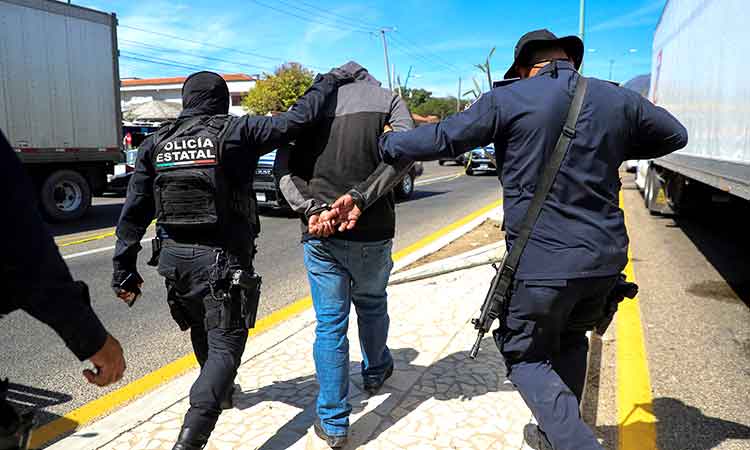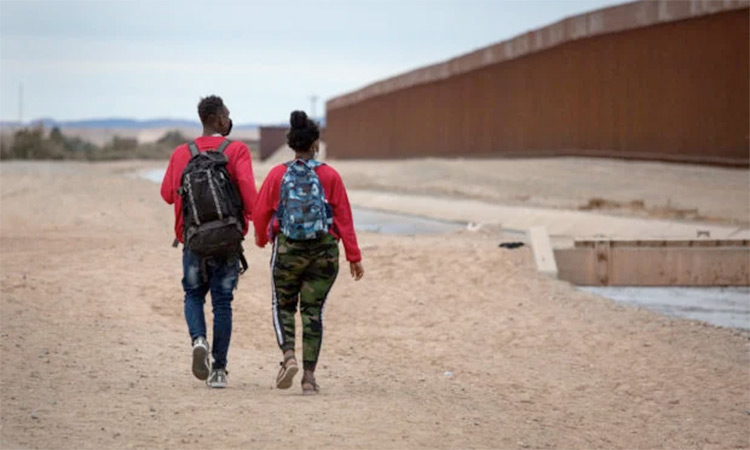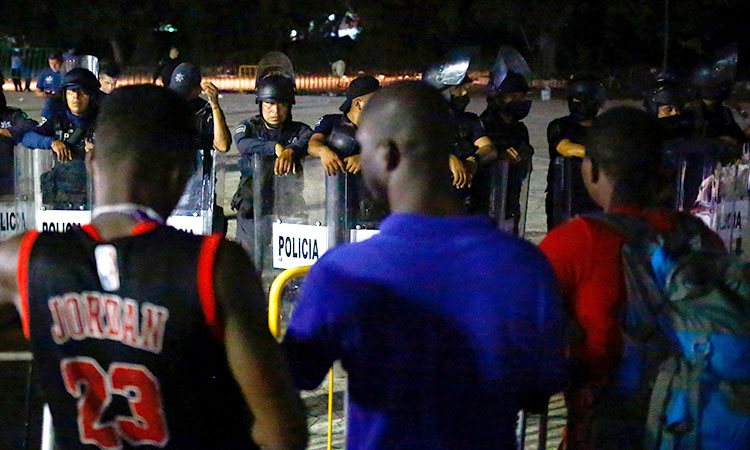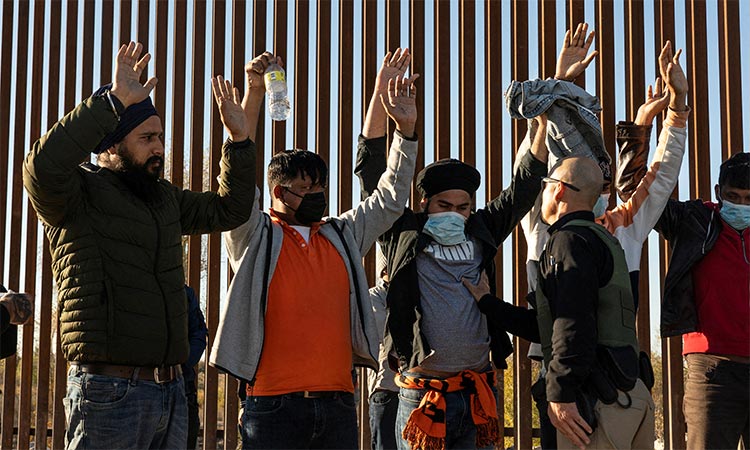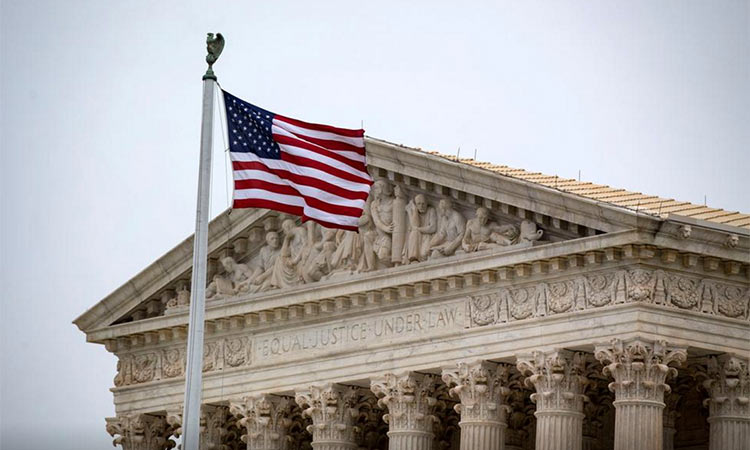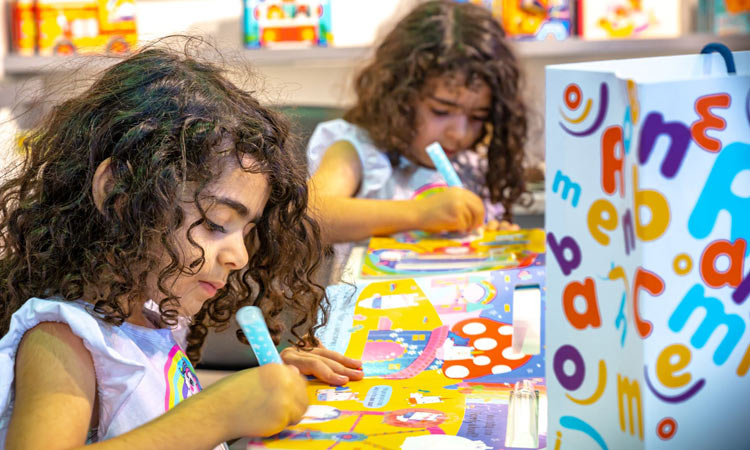The full story on immigration is still unheard
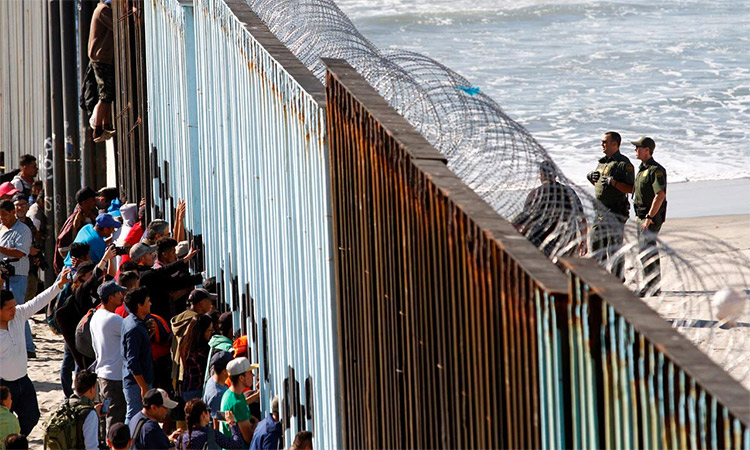
Migrants, part of a caravan of thousands trying to reach the US, look through the border fence between Mexico and the United States. Reuters
Cynthia M. Allen, Tribune News Service
It’s hard to get an accurate and honest picture of what’s happening on our nation’s southern border and why, especially during what already is proving to be a long and mendacious election season.
If you’re hearing and repeating the words of President Donald Trump and his surrogates, you’re likely to believe the border is being flooded by criminals and terrorists disguised as terrified, malnourished children, eager to exploit a long-failed immigration system.
If you’re listening to and parroting only the stump speeches and softball interview responses from Democratic candidates like Julian Castro, Beto O’Rourke and, frankly, almost any member of the progressive left (which is basically every candidate seeking the White House right now), you’re apt to think instead that the criminals are the uniformed border agents (who stand accused of ripping nursing babes from their mothers’ arms and forcing women to drink from toilets). Not to mention anyone brazen enough to defend them or suggest that maybe our border shouldn’t be a sieve.
Neither of these views is true, and the reality is far more complicated. For instance, Customs and Border Protection facilities were not designed with the current influx of migrants in mind (why would they be?). Federal funding delays are largely responsible for the poor conditions and dearth of supplies in detention facilities. Seemingly legitimate fears of child exploitation by adults posing as parents makes family separation in specific cases a less sinister approach to detention.
And decades of insufficient law enforcement by both Democrats and Republican administrations has contributed — at least in some measure — to the steady stream of migrants breaking US immigration laws without consequence.
Then there’s the matter of why so many migrants are coming here in the first place. Some would argue it’s to take advantage of our welfare state or our broken immigration system or to engage in criminal enterprises such as drug and sex trafficking. There’s evidence that some of this is true, but not on the scale that many want to believe.
There are others who insist that every migrant — most of whom are told by smugglers to seek out a border agent and claim asylum — is fleeing persecution and therefore entitled to protections and benefits reserved, by law, for a relative few.
It’s more likely than not that the people fleeing the so-called Northern Triangle of El Salvador, Honduras and Guatemala are legitimately attempting to escape violence and fear. But that violence and fear is not the consequence of persecution due to race, religion, nationality, social group or political opinion, and it does not come at the hands of their governments, but of their fellow countrymen who carry out their criminal activities with impunity.
Sympathy and prayer for these victims as well as humane treatment of migrants in US custody is required; disregard of our laws and sovereign borders is not.
Yet everybody with a podium seems hell-bent on finger-pointing yet unwilling to engage in the kind of self-reflection that real leadership demands. Everybody with a podium in the US, anyway.
El Salvador’s new president, Nayib Bukele, offered an honest reflection on the border crisis — perhaps because his election is already won. Responding to the tragic drowning deaths of Oscar Alberto Ramirez and his daughter Valeria, who died while attempting to ford the Rio Grande, Bukele admitted what few in his position are willing to concede: “It is our fault.
“People don’t flee their homes because they want to,” Bukele told reporters in San Salvador. “People flee their homes because they feel they have to. ... If people have an opportunity of a decent job, a decent education, a decent health-care system and security, I know forced migration will be reduced to zero.”
That kind of probity about the border crisis could go far in helping policymakers to develop solutions. But we’re unlikely to hear any coming from our politicians unless we are willing to have an honest conversation about it. Can we do that?
